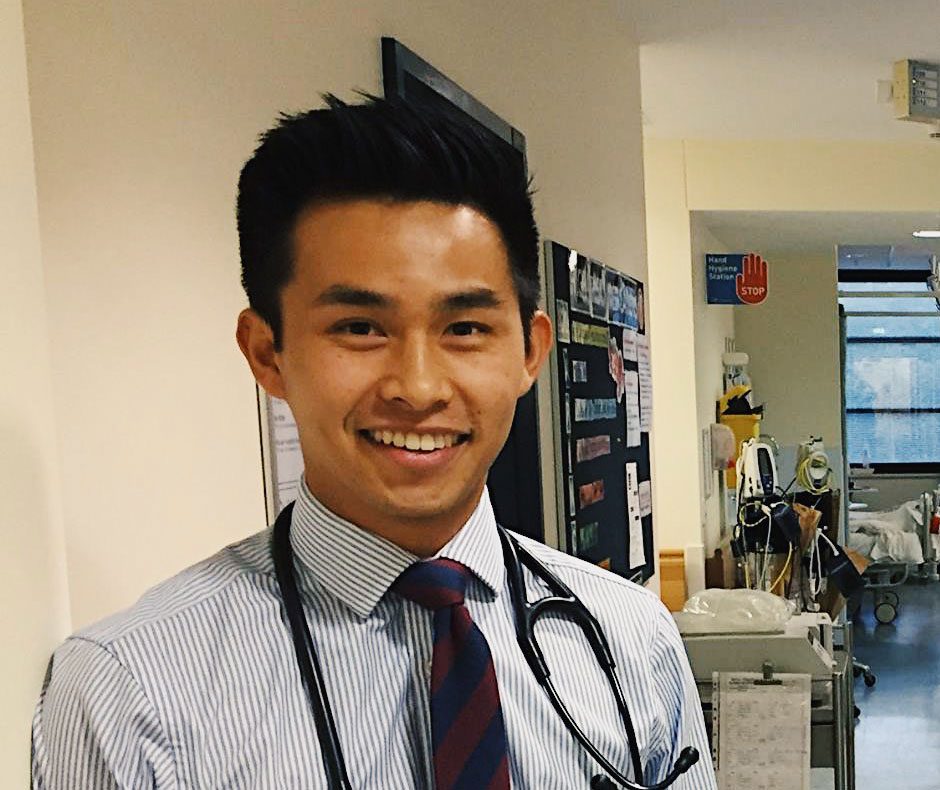
Brendon Neuen: bound for Oxford
Meet Dr Brendon Neuen, PhD candidate and Oxford Scholar, whose research is aimed at improving outcomes in chronic kidney disease, one of the fastest rising causes of death and disability worldwide.
How long have you been working at The George Institute?
I started my PhD part-time at The George Institute in September 2017, but have only just switched to full-time three weeks ago!
I first met Professor Vlado Perkovic in 2013, and since then we have collaborated on several projects in addition to my clinical work. I’m grateful for this new opportunity and looking forward to seeing what we can achieve over the next two years.
What attracted you to working here?
I wanted to work with people committed to helping others live longer and healthier lives, focusing on the leading cause of death and disability worldwide – non-communicable diseases.
The George is a unique medical research institute. People here are unrelenting in their focus on finding solutions to our most important health challenges. There is a specific focus on vulnerable populations, both in high and low-income countries. Most importantly, there is a commitment to translating our work into guidelines, advocating for evidence based public policies, and contributing to public discourse. All these things make for a dynamic and inspiring research environment.
How would you summarise the research you do and the difference it will make to healthcare?
My research focus is on understanding the epidemiology of diabetes and chronic kidney disease (CKD), as well as testing the efficacy and safety of different treatments for diabetes in people with reduced kidney function. My work includes longitudinal cohort studies, as well as secondary analyses of clinical trials and meta-analyses. Our work on the benefits and harms of different diabetes medications in CKD has the potential to inform clinical practice guidelines, and in the case of new treatments, potentially influence regulatory approvals.
You’ve just secured a full scholarship to the University of Oxford, congratulations! What will you be doing there?
I will undertake an MSc in Global Health Science and Epidemiology, which will provide me with high-level training in epidemiology, statistics, and clinical trials. These skills will allow me to undertake practice-influencing epidemiological and clinical trials research in chronic kidney disease upon returning to Australia.
Oxford is obviously an esteemed university, but what else drew you to it?
Studying at Oxford will provide me with opportunities to extend my clinical and research networks globally. I will be based at the Nuffield Department of Population Health, a dynamic cross-disciplinary community that shares The George Institute’s commitment to improving the health of millions of people worldwide.
Aside from world-class training through the MSc coursework, there are opportunities to strengthen and extend existing collaborations. We have colleagues and partners not only at The George Institute UK but also the Renal Studies Group at Oxford. Working on shared projects through the MSc dissertation provides an opportunity to strengthen these relationships and build upon the taught program.
What are your career plans after your PhD?
My long term career goal is to improve the lives of as many people as possible living with kidney disease by working as a nephrologist, epidemiologist, and clinical trialist, undertaking high-quality research that has the potential to guide chronic disease policy, practice, and advocacy both in Australia and globally.
After I complete my PhD, I will return to clinical medicine to complete my advanced training in nephrology. At the same time, I plan to continue to undertake a portfolio of research from epidemiological studies to clinical trials and meta-analyses, working with partners from around the world to better understand the burden of kidney disease and prevent its progression and complications. I plan to maximize my research impact by focusing on implementation science – in other words, enhancing the translation of evidence into clinical practice – and by working with government, professional bodies, and advocacy groups to support this work.
What motivates you most in your work?
One of my favourite quotes is from Anne Fadiman’s The Spirit Catches You and You Fall Down: “the action most worth watching is not at the centre of things but where edges meet”.
The most rewarding aspect of my work is searching for that intersection between focusing on the individual and thinking about the “big picture” questions. I love working as a clinician – mastering the granular details and nuances of nephrology and applying them to individual people is inherently rewarding. At the same time, we cannot address the global pandemic of chronic diseases, with medicine alone; we need to focus on changing the complex societal frameworks that influence disease – for example, food policy, education, and urban design and transport planning.
To explain to people what I do I say…
I am a medical doctor, training to becoming a kidney specialist and conducting clinical research to improve evidence-based practice and outcomes for people living with kidney disease and related chronic conditions such as diabetes and cardiovascular disease.
My biggest achievement so far is…
There have been many highlights: publishing in the Lancet, being the youngest recipient of the Australian and New Zealand Society of Nephrology Interventional Nephrology and Rural Science Awards, and receiving a full scholarship to Oxford.
But what is most rewarding is learning to articulate a vision for the kind of career I want to have, the kind of difference I want to make – and then making it happen through hard work and perseverance. Five years ago, I wrote in PLOS Global Health that I’d like to undertake physician training and commence a PhD at The George Institute; I have now completed my final specialist clinical examinations, and I am conducting secondary analyses of the CANVAS Program, one of the most exciting recent trials in diabetes. I hope that I can make even more progress – but over the course of my career – in advancing our understanding of kidney disease and improve the lives of those affected by it.



